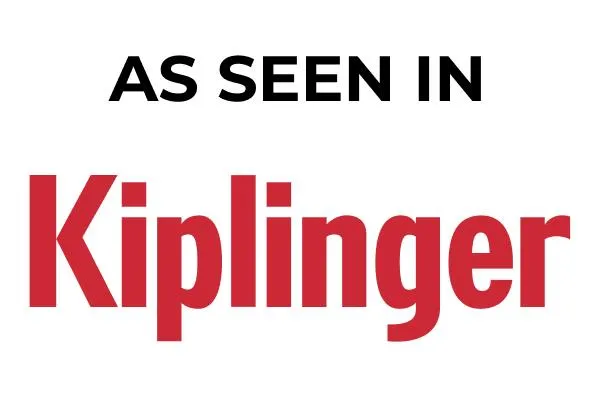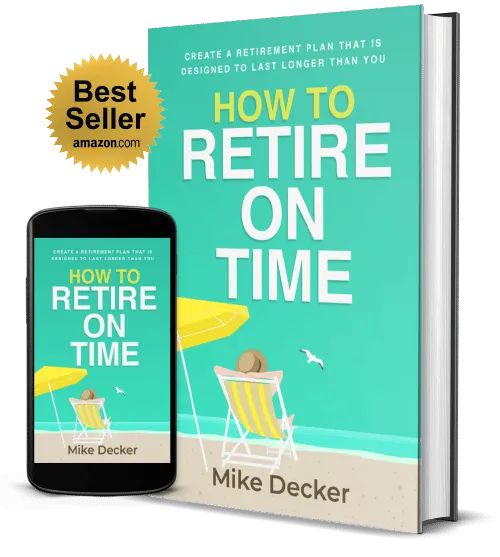For those who enjoy their research…
Articles & Press
Read our articles, some written for other publications, others written exclusively for the Kedrec audience.

1031 Exchange: Do You Know Your ‘Like-Kind’ Options?
This article was originally written for Kiplinger.
If you own investment real estate, then you’ve probably heard of the 1031 exchange. For those who are unfamiliar with the line in the tax code, here’s a simple explanation: The 1031 exchange allows you to sell your investment property and use the proceeds, gains and all, to purchase another property or “like-kind” asset without paying any capital gains tax. It's rare to have a line in the tax code that allows you not to pay taxes, which makes the topic so interesting.
Some real estate investors believe that in order for the 1031 exchange to work, deferring all capital gains tax, the like-kind replacement property must be identical to the investment property sold. For example, if you’re selling farmland, some believe you can 1031 exchange the proceeds only if the replacement property is also farmland. Others believe that to qualify for a 1031 exchange, you must be the owner of the property being sold and the replacement property being acquired. Neither of these is a 1031 exchange restriction.
According to the Internal Revenue Code, to qualify as a like-kind option for a 1031 exchange, the investor must use the sale proceeds of their investment property to purchase ownership, whole or fractional, of another asset that qualifies as investment real estate. The idea is to defer capital gains tax so you can continue to grow your portfolio efficiently. The real estate market can be a wonderful place for a portion of your overall portfolio.
It is important to note that your primary residence, personal property, second home, vacation home, Airbnb/VRBO that you personally use for more than 14 days per year, etc., do not count as investment real estate and won’t qualify for a 1031 exchange. This article is intended to show you 1031 exchange options you may not have known qualify so you can expand your choices as you consider your potential replacement properties.
1031 exchange process follows complex rules
Before we dive into your options, make sure you understand the many 1031 exchange rules you need to know. Among these rules, it is important to review your 1031 exchange strategy with a professional who understands the exchange process before you put your investment property up for sale. There are important timelines that must be met and many restrictions that need to be followed if you want to benefit from a 1031 exchange.
As you consider your options below, make sure to include your cash-out option. Sometimes, especially when the gains are relatively low, it may make sense to sell the property, pay the taxes and invest in something different. Take time and calculate your overall potential tax liability if you were to sell so that you can make as much of an apples-to-apples comparison with the potential replacement properties.
There are two groups of like-kind options when you consider a 1031 exchange. The first group consists of your more traditional options, wholly owned assets. They are:
Raw land
Farmland
Vacant land
Residential real estate
Commercial real estate
Industrial real estate
Leasehold interest
Mineral rights
The second group that qualifies for a 1031 exchange consists of your fractional interest options, which are:
Tenant in common
Delaware statutory trust
Let’s briefly review each of the options and their benefits and detriments. Remember, there is no such thing as a perfect investment. It is important to research and vet your options before making any decision. This is especially true in real estate, where liquidity may be a concern.
Raw land is typically the cheapest land to purchase. There is nothing on it. It’s your blank canvas. This type of real estate typically will require some work and capital to create some sort of cash flow if that is what you want.
Farmland is your most basic type of real estate that can provide cash flow immediately. It has either a crop on it or animals grazing it (sometimes a mixture of both).
Vacant land typically consists of land that lacks a physical home or building but contains most, if not all, of the underground infrastructure needed (e.g., sewer, water, etc.). These properties tend to be more suited for developers who see value in the land and location.
Residential real estate is one of the more common types of investment properties I see in portfolios. Examples include vacation rentals (Airbnb and VRBO) that are not used for personal enjoyment, your basic rental property like a single-family house, duplex, mobile home, apartment building and so on. Before you invest in these properties, make sure you do your due diligence on the potential cost of maintenance and tenant management.
Many times, investors will start with one investment property, like a residential rental property, and then use the cash flow to purchase another. Once the property is paid off, they may purchase a new property and use the 1031 exchange to purchase another property at an equal or greater value.
Commercial real estate properties often offer higher potential earnings than residential real estate. Whether it is office space or retail space, most businesses need a place to work and/or sell their goods and services. However, the cost tends to be higher, and it may require more available liquidity to handle potential repairs and maintenance.
If you own a business and need office space, you may consider purchasing the building you work in, allowing your current business that is using the space to pay for the mortgage of your new real estate business. Once you sell the business that used the space, consider selling the property, too, so you can do a 1031 exchange into another investment that may offer a more passive cash flow, like a Delaware statutory trust (see below).
Industrial real estate typically refers to factories, manufacturing facilities, power plans and more. These properties usually require a greater amount of maintenance to keep them functioning. Like commercial real estate, it will be important to have significant liquid funds set aside for potential repairs and maintenance.
Leasehold interest. Sometimes, the land and the building are owned and sold separately. That’s OK, because on their own — the building or the land — they each still qualify for a 1031 exchange. If you buy the land and not the building, or you buy the building and not the land, it is recommended that you know the other party. The relationship can be similar to a marriage, so make sure it is a good fit.
Mineral rights. Most real estate has to do with the building and the surface land. On occasion, you will find below-surface land rights, like mineral rights. These rights qualify for 1031 exchanges. If a different entity owns the below-surface rights than the surface rights, it is encouraged to know who the other party is, if possible. You want to make sure there is potential for a healthy working relationship.
Tenancy-in-common (TIC) investments involve multiple investors coming together to purchase a property collectively. Since each tenant is a partial owner, this type of structure qualifies for a 1031 exchange. Keep in mind the ownership profits and losses can directly affect each of the investors involved. Also, each investor has voting rights, and any decision to refinance, renew leases or sell needs to be unanimously agreed upon by the owners.
Delaware statutory trusts, similar to TIC investments, allow for fractional real estate ownership, which allows them to qualify for a 1031 exchange. DSTs have several requirements, like purchasing shares through a qualified intermediary (QI).
There are a few important differences between DSTs and TICs. One of the biggest differences between the two is TICs are responsible for the loan and the investment property demands, whereas DSTs are not responsible for the loan or the investment property demands. Since 2004, when the IRS ruled that DSTs qualified for a 1031 exchange, they have become one of the more popular options for landlords who want to retire from the grind while maintaining real estate-based cash flow. If you want to learn more about DSTs and how you can utilize a 1031 exchange to move assets into this option, read my article Delaware Statutory Trust: The Landlord’s Exit Many CPAs Don’t Know Exists.
Qualified opportunity zones. If you want out of the real estate game, you don’t like the like-kind options that qualify for a 1031 exchange, or you can’t stomach the potential tax bill that would come if you were to sell the property, there may be another option. It is called a qualified opportunity zone, or QOZ.
You might ask, “What about REITs? They are real estate investments, right?” They may invest in the real estate market, but when you buy a REIT, or real estate investment trust, you are purchasing shares of a company, not shares of the actual investment real estate. Therefore, REITs do not qualify for a 1031 exchange.
In conclusion
In conclusion, each like-kind option you have available for a 1031 exchange has its own benefits and detriments, including factors such as management responsibilities, potential for appreciation, and liquidity and tax implications. It's great whenever you can defer all of your capital gains taxes when selling any investment, especially real estate. However, don't let that be the only deciding factor.
When it comes to exit strategies for business or investment properties, investors should carefully evaluate their investment goals, liquidity needs, risk tolerance and individual circumstances when choosing the most suitable like-kind option for their 1031 exchange.
Ready To Get Your House In Order?
Click the button below and tell us what you want.
Our comprehensive services are designed to help you fully experience life (financially, at least).
CREATE A RETIREMENT PLAN DESIGNED TO LAST LONGER THAN YOU
HOW TO RETIRE ON TIME
In this book, you'll discover:
How to run the numbers and see when you can afford to retire (It’s easier than you think).
Learn why many common retirement income strategies may be riskier than you realize.
Discover proprietary retirement income strategies that may be able to help you have more control over your income while potentially lowering your risk.
How to proactively anticipate and manage your retirement during the market's ups and downs.
Why it’s typically not too late to course-correct. If you have already retired, there’s still time to get on the right path.
And much more!

This book is a marketing publication for Kedrec, LLC

Explore Your Lifestyle and Legacy Potential
This content on this website is provided for informational purposes only and is not intended to serve as the basis for financial decisions. It should not be construed as investment advice or a recommendation.
Investment advisory services are offered through Kedrec, LLC, a Kansas state Registered Investment Advisor. Insurance products and services are offered through its affiliate, Kedrec Legacy, LLC. We are not affiliated with the US government or any governmental agency.
Investing involves risk, including possible loss of principal. No investment strategy can guarantee success, ensure a profit or guarantee against losses. Insurance product guarantees are backed solely by the financial strength and claims-paying ability of the issuing company.
Insurance and annuity products involve fees and charges, including potential surrender penalties. Annuity withdrawals are subject to ordinary income taxes and potentially a 10% federal penalty before age 59-1/2. Life insurance generally requires medical and potentially financial underwriting to qualify for coverage. Optional features and riders may entail additional annual cost. Product and feature availability may vary by state.
Tax, legal and estate planning services are available only to members who purchase the Fresh Wealth Plan Membership level. Tax, legal and estate services provided by our network of tax and legal professionals. Always consult with qualified tax/legal advisors regarding your unique circumstances.
This content on this website is provided for informational purposes only and is not intended to serve as the basis for financial decisions. It should not be construed as investment advice or a recommendation.
Investment advisory services are offered through Kedrec, LLC, a Kansas state Registered Investment Advisor. Insurance products and services are offered through its affiliate, Kedrec Legacy, LLC. We are not affiliated with the US government or any governmental agency.
Investing involves risk, including possible loss of principal. No investment strategy can guarantee success, ensure a profit or guarantee against losses. Insurance product guarantees are backed solely by the financial strength and claims-paying ability of the issuing company.
Insurance and annuity products involve fees and charges, including potential surrender penalties. Annuity withdrawals are subject to ordinary income taxes and potentially a 10% federal penalty before age 59-1/2. Life insurance generally requires medical and potentially financial underwriting to qualify for coverage. Optional features and riders may entail additional annual cost. Product and feature availability may vary by state.
Tax, legal and estate planning services are available only to members who purchase the Fresh Wealth Plan Membership level. Tax, legal and estate services provided by our network of tax and legal professionals. Always consult with qualified tax/legal advisors regarding your unique circumstances.


